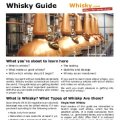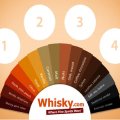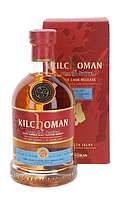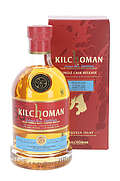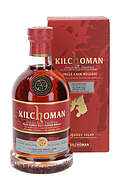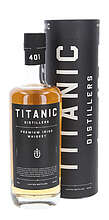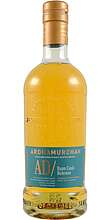Whisky and Whiskey - The Spelling
Have you ever stumbled upon the two different spellings of Whisky and Whiskey respectively? Obviously Whisky.com ist spelled without 'e'. On many of the bottles on our website, however, it says Whiskey with an 'e'. What is the difference?
If new customers write to us, they generally write Whiskey with 'e'. If the press reports, the 'e' before the 'y' is also very widespread. Why does our company not use the 'e' in front of the 'y', while the rest of the world seems to write 'Whiskey'?
This is because ‘Jim Beam’ and ‘Jack Daniel's’, the two big Whiskeys - with an 'e' before the 'y' - have such a large market share in Germany that they have been able to prevail over the world's biggest Scottish Whisky brand, ‘Johnnie Walker’. Whiskies by Johnnie Walker are spelled without an 'e' before the 'y'.
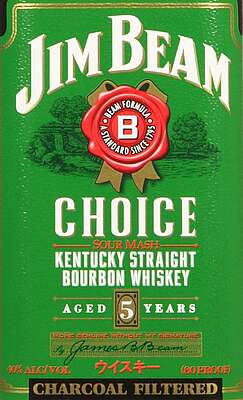
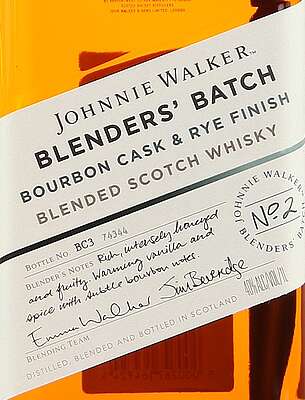
But why does our favourite drink come in two different spellings anyway? The answer is pretty straightforward: the spelling of Whisky or Whiskey simply depends on the country you are in. In Scotland it is spelled without an 'e', in Ireland it is spelled with an 'e'. This distinction is also made in the New World: Americans spell it with 'e' and Canadians spell it without. Since Canada is also part of the British Commonwealth, this is hardly surprising. In Germany and Japan, too, people have adapted to the Scottish spelling and distil Whisky without an 'e'. Since many Irish emigrated to the USA due to the Great Famine in the middle of the 19th century and a lot of Irish Whiskey found its way across the Atlantic as a result, it also makes sense that the spelling with 'e' established itself in the states.
Scotland, Canada: Whisky
Ireland, USA: Whiskey
This distribution applies with very few exceptions. In America, for example, there is 'Maker's Mark Kentucky Straight Bourbon Whisky' or 'George Dickel Tennessee Whisky' - without an 'e'.
uisge beatha - Water of Life
Originally, the term 'Whisky' is derived from the Scottish Gaelic 'uisge beatha' (pronounced: ushke baha), which means 'water of life'. In the course of time and due to sound shifts, the Gaelic word eventually changed to the term used today.
The difference in spelling is the result of a dispute between Irish and Scottish Whisky producers. Until the 19th century, Whisky was produced exclusively in pot stills. And this original Pot Still Whisky was spelled without 'e' before the 'y'. In 1826 the Column Still was invented. This allowed continuous distillation, which was cheaper, while producing a mellow Whisky.
However, Irish Whisky manufacturers were of the opinion that the distillate from the Column Still was not a proper Whisky. The dispute over the production of whisky led to a dispute that finally escalated in 1905. At that time Ireland was still part of the United Kingdom and not a separate state. Scotland already found peace with the English crown in the 18th century, but in Ireland people felt occupied. This led to the War of Independence and the separation between the independent Republic of Ireland and Northern Ireland, which is part of the United Kingdom. The dispute over the 'correct' way of making Whisky led so far that a 'Royal Commission' was established to check whether this column distillate could also be called 'Whisky' or whether it was just some kind of Brandy.
The Birth of Whiskey
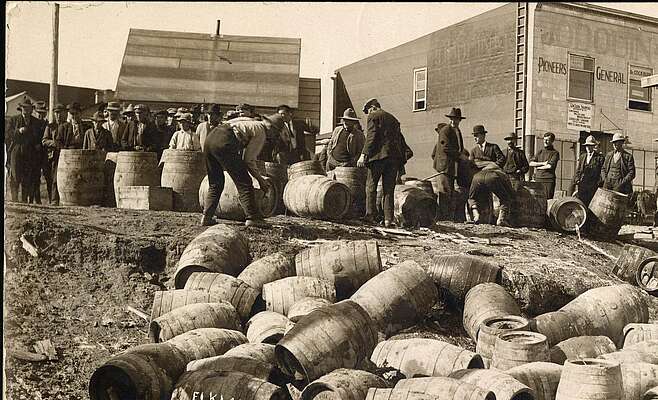
In 1909, the Commission concluded that Blended Whisky or column still Whisky may also be called Whisky. In Ireland, people were dissatisfied with this decision because their call to the Commission had been lost. To distance themselves from others, Irish Whisky producers have since spelled their Irish Whisky with an 'e' before the 'y'. That was the birth of ‘Whiskey’.
In 1919, the Prohibition was enforced in the USA, a nationwide ban on the production, transport, and sale of alcohol. This change in law also affected many manufacturers outside the US. Several Irish traders exported to the US through their countrymen who had previously emigrated there due to the Great Famine.
At about the same time the War of Liberation against the English Crown took place, which ended in 1921 with a truce and finally with the independence of the Republic of Ireland. Shortly after, Ireland withdrew from the British Commonwealth. For Irish Whiskey, the prohibition in the US and the withdrawal from the Commonwealth meant that their two by far most important markets were eliminated. The Irish Whiskey market was going south rapidly, and since the pot still process was very expensive, Irish Whiskey producers also switched to column still production. Another equally important reason for this was the newly introduced malt tax. In Column Stills even grain that has not been malted beforehand can be distilled wonderfully and so the tax was saved as well.
Today the tide has turned again in contrast to 1909: In Scotland, a considerable part of the Whisky production relies on pot still distillation, while this part is still small in Ireland. This is particularly noticeable in the fact that the Irish distilleries that were producing in pot stills often no longer exist due to financial difficulties. However, the spelling of Whisky in Scotland and Whiskey in Ireland has not changed.
Whether you prefer Whisky or Whiskey - enjoy it!



